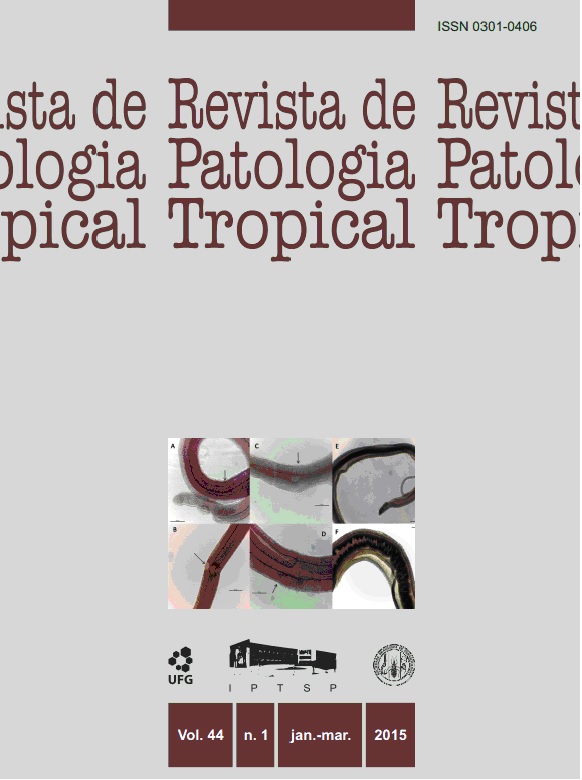LEISHMANIOSE VISCERAL CANINA: COMPARAÇÃO DE MÉTODOS SOROLÓGICOS EM CÃES DE ÁREA INDENE DO RIO GRANDE DO SUL NO BRASIL
DOI:
https://doi.org/10.5216/rpt.v44i1.34799Palavras-chave:
Leishmania chagasi, zoonoses, diagnóstico.Resumo
Neste estudo foi realizado um levantamento da presença de cães soropositivos em canis de 12municípios do Rio Grande do Sul, comparando-se métodos e protocolos de diagnóstico. Comisso, pode-se detectar precocemente uma possível disseminação da doença e, consequentemente,incentivar campanhas de controle e prevenção e evitar futuros surtos. Este estudo foi realizadoem uma área do RS sem diagnóstico de leishmaniose visceral canina (LVC), sendo avaliado umtotal de 165 cães. A pesquisa sorológica foi realizada por meio das técnicas de imunofluorescênciaindireta (IFI), ensaio imunoenzimático (ELISA) e Dual Plate Plataform (DPP). Constataram-setaxas de 33,9% (56/165) na IFI, 6,7% (11/165) no DPP, 3,0% (5/165) na IFI e DPP e 6,1% (10/165)no ELISA. Dentre os resultados confirmados no ELISA, cinco (5/10) foram reagentes na IFI, dosquais, desconsiderando-se os dois que foram soropositivos apenas no ELISA e IFI, resultaram trêscães (3/10) soropositivos no DPP e ELISA, conforme o protocolo atual preconizado pelo Ministérioda Saúde. Também foi feita a comparação entre os testes de diagnóstico para verificar acurácia evalor kappa. Ao considerar somente resultados positivos no DPP e IFI, a acurácia aumentou para94,6%, com um valor Kappa=0,375, ou seja, com uma concordância considerável. Conclui-se quea pesquisa em áreas do RS sem diagnóstico de LVC revelou a presença de cães sororreagentes emquatro municípios do estado: Cachoeira do Sul (2), São Francisco de Assis (1), Dom Pedrito (1) eRio Grande (1).Downloads
Downloads
Publicado
Como Citar
Edição
Seção
Licença
The manuscript submission must be accompanied by a letter signed by all authors stating their full name and email address, confirming that the manuscript or part of it has not been published or is under consideration for publication elsewhere, and agreeing to transfer copyright in all media and formats for Journal of Tropical Pathology.

